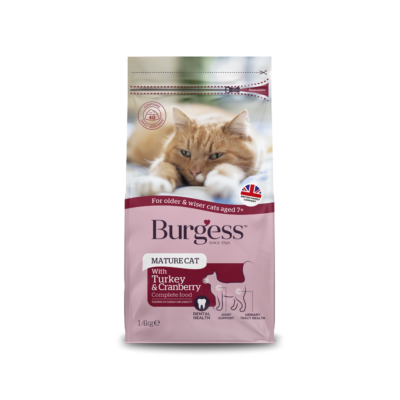Burgess mature cat food is suitable for cats from age seven onwards. Providing your pet with a nutritionally balanced, complete diet will help keep them in tip top condition during their senior years.
All of our cat food is made at our own factory in the heart of Yorkshire, using only ingredients that meet our stringent specifications – locally sourced from British farmers wherever possible – to support the nutritional requirements of cats throughout all their different life stages.
Senior Cat Food FAQs
Got a question about moving your favourite feline onto cat food for older cats? We’ve put together some really useful answers from our nutrition team at Burgess, the pet care experts.
Need more advice?
If you’re at all unsure about the best way of feeding your adult cat or have any concerns about specific nutritional requirements, ask your local veterinary practice for advice.
You can also call our expert team, available 9am-5pm, Monday to Friday, on +44 (0)1405 862241 who’ll be happy to help with your mature cat food questions. Alternatively, use our online contact form to get in touch.
Is your cat a Burgess cat? Join the Burgess Pet Club for exclusive offers and rewards.















